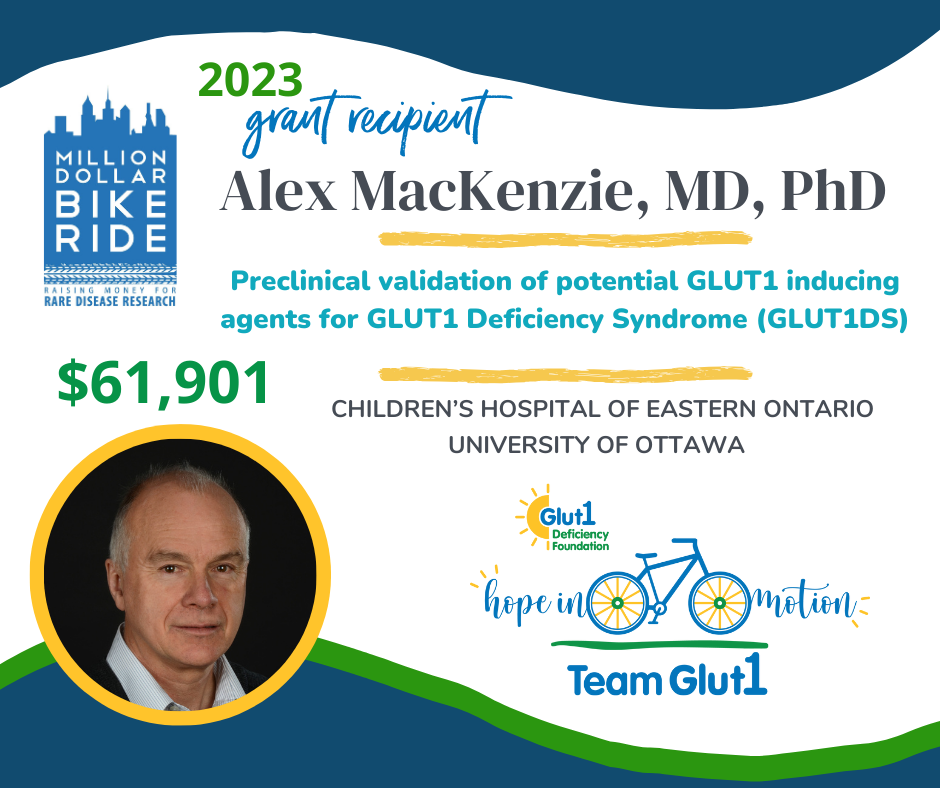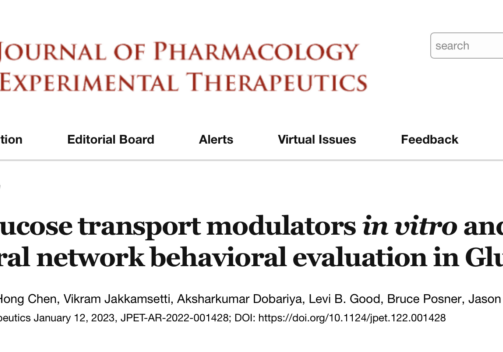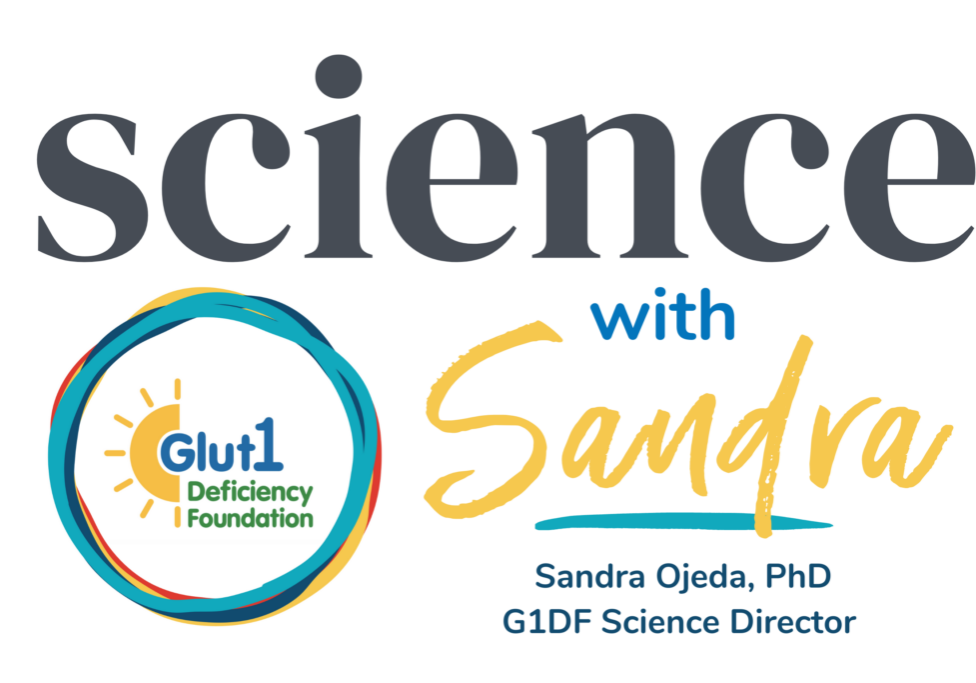2023 Million Dollar Bike Ride Grantee: Dr. Alex MacKenzie

We are delighted to share news about the selection of Dr. Alex MacKenzie as the 2023 recipient of the Million Dollar Bike Ride grant for Glut1 Deficiency research.
Dr. MacKenzie is a pediatrician and principal investigator at the Brain and Mind Institute at the University of Ottawa and the Children’s Hospital of Eastern Ontario where he specializes in rare neuromuscular diseases. His team is working on developing strategic toolboxes and preclinical research pathways for inherited disorders and orphan diseases.
Learn more about Dr. MacKenzie’s project below, and visit the Million Dollar Bike Ride website for more information on all the rare disease teams and research grant recipients – $2.4 million dollars in total! The 2024 event will be held in June and Team Glut1 is fortunate to have qualified for a spot again this year. Stay tuned for more information on how you can get involved and put your hope in motion to drive research progress.
This award was made possible thanks to our generous donors who helped us qualify for a matching grant from the Penn Medicine Orphan Disease Center. We also gratefully acknowledge the Meisner family for their help in heading up these efforts for Team Glut1. We are also very thankful for all the dedicated researchers who submitted proposals.
Project Summary:
Preclinical Validation of potential GLUT1 inducing agents for GLUT1 Deficiency Syndrome (GLUT1 DS)
Funding Period: February 1, 2024 – January 31, 2025
Summary:
Glucose is an essential energy source for the growing brain; low glucose levels in the brain can result in severe delay and disruption in brain development. This is the situation in the rare genetic disorder glucose transporter 1 deficiency syndrome (GLUT1 DS). GLUT1 DS is caused by mutations in the SLC2A1 gene that makes the so called transporter protein GLUT1 which is responsible for transporting glucose from the blood into the brain. A child with GLUT1 DS has only about half the normal level of brain glucose resulting in microcephaly, the development of seizures, as well as movement, and speech disorders that get progressively worse as they age. Although in GLUT1 DS, one of the SLC2A1 genes is mutated, every person has two copies of each gene; the “turning up” of the remaining normal SLC2A1 gene to make more of the GLUT1 protein in infants and children with GLUT1 DS represents a possible treatment for this untreatable disorder. We have studied the impact of several hundred clinically approved drugs on human blood vessel cells to determine if any of them increase the expression of GLUT1; eight such drugs have been identified. The top GLUT1-inducing drugs as well as roughly an equal number of drugs with similar impact that other scientists have found and published on will be tested on a mice model that, like humans with GLUT1 DS have mutated GLUT1. We shall use a variety of approaches, including so-called PET scan, which gives read outs of actual brain glucose levels before and after drug treatment, to see which are successful in increasing glucose transport to the brain. Drugs with the capacity to increase GLUT1 levels could be used as a treatment for GLUT1 DS and will be the subject of a clinical trial.



